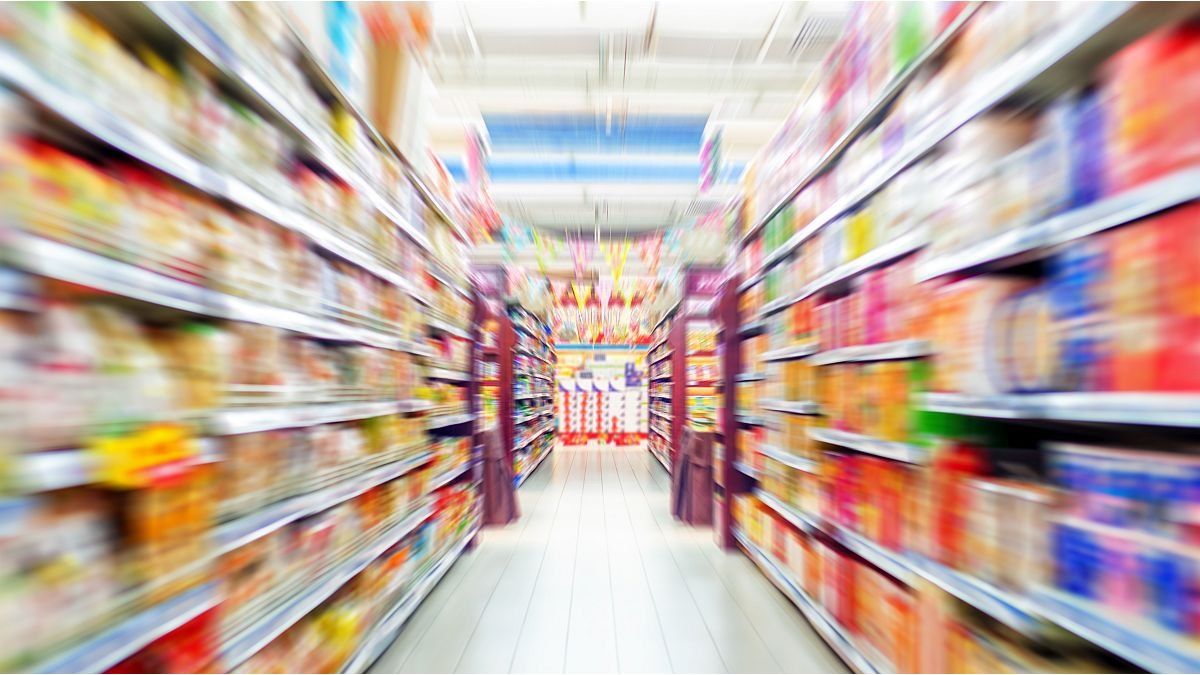According to the survey by the company Scanntech Argentina, which processes 618 thousand tickets weekly throughout the country, in regional supermarket chains there was a sales drop of 12.8% in January regarding December 2023 and 12.5% year-on-year.
In January, in regional chains The average purchase was 7.4 units per ticket, with a reduction of 14.1% compared to the previous month.
In self-services, Sales fell 14% in January compared to December and 19% year-on-year, with an average of 4.1 units per ticket, 8.2% less than in December.
Likewise, Scanntech analyzed the week between February 10 and 16, 2024: In regional chains, consumption fell 34.3% compared to the previous week and 39.7% compared to the same week last year.
Units per ticket are 21.9% less than a year ago and are reduced week by week (-9.3% compared to the previous week), while in the last week, despite the price increase, the value average per ticket decreased 4.8%.
The rise in prices and the fall in consumption
According to the same survey, in the total consumer baskets There was a price increase of 5.1% that week compared to the previous one and an increase of 351.3% compared to the same week the previous year:
Drinks was the category that rose the most in the weekly comparison (9.1%) and personal care was the one that more increased in interannual comparison (378.3%).
Meanwhile, in the same week of analysis, the self-service They recorded a drop of 18.4% in sales compared to the previous week and 23.7% compared to the same week last year; Units per ticket are 13.2% less than a year ago and are also decreasing week by week (-5.8%).
In self-services, in the last week surveyed, The average value per ticket decreased 1.4%.
Osvaldo del Río, director of the consulting firm Scentia, pointed out that “the consMass packaged smoke had a retraction of 3.8% in January 2024″ in the average between supermarkets and self-services of the AMBA and the Interior of the country.
consumption-supermarkets-inflation-prices-gondola-foods.jpg
In self-service, in the last week surveyed, the average value per ticket decreased 1.4%.
Depositphotos
In particular “supermarkets, which for more than two years showed positive indicators, suffered a decline in sales of 8.3%”.
In this context, “it is likely that habits that we have already seen will intensify, with a greater purchasing frequency and fewer units per ticket, in order to be more careful with spending in each act of purchase,” considered Del Río.
Scentia recorded falls in sales in all consumer baskets both in supermarkets and self-service stores (in AMBA and Interior), while in contrary trend, With an increase of 8.4%, the impulsive category stood out – such as sweets and chocolates – in which the buyer does not value the convenience of the purchase and is carried away by the gratifying sensation of buying something.
Concern about personal and family consumption
According to market research carried out by ShopApp on Perspectives 2024 and Consumption, based on a survey of 1,000 cases between December 22 and 25, 62% declare that their The main fear for 2024 is the personal/family economy.
This is followed by the country’s economy (45%), the country’s political situation (29%) and mental health (24%).
In relation to the personal/family economy, the main fears are that inflation will be very high (60%), that their income will be reduced (51%), having to adjust their standard of living (28%), losing their job ( 19%) and not getting a job (16%).
60% of consumers believe that their income will increase below inflationwhile 18% believe that they will increase above it.
Consumption: what are the new strategies of consumers in the face of rising prices
To face the new increases, 78% will reduce expenses, 25% plan to use savings and 21% plan to finance themselves with credit cards.
63% of consumers stated that stopped consuming brands that he usually bought (at least 1 brand), which has a greater incidence among women, older adults and higher socioeconomic levels.
Among the main reasons are: the price increased a lot (93%), I can’t get the brand I used to buy anymore (15%) and the quality of the product went down (15%).
He 41% of consumers switched to a cheaper brand they knew, while 26% switched to a cheaper brand they were not familiar with; 15% stopped buying the category; and 12% switched to a supermarket or wholesaler’s own brand.
To the 47% do not mind changing the brand of any product they consumewhile for 40% they always buy the same brand for some products and it varies for other products.
To save on everyday supermarket products, a 63% of consumers will only buy when the things they need are on sale.
While 38% are going to stop buying categories that are not essential, 31% are going to change their usual brands for cheaper ones, 24% are going to buy from wholesalers and 20% are going to make smaller purchases. and more frequent.
Source: Ambito




